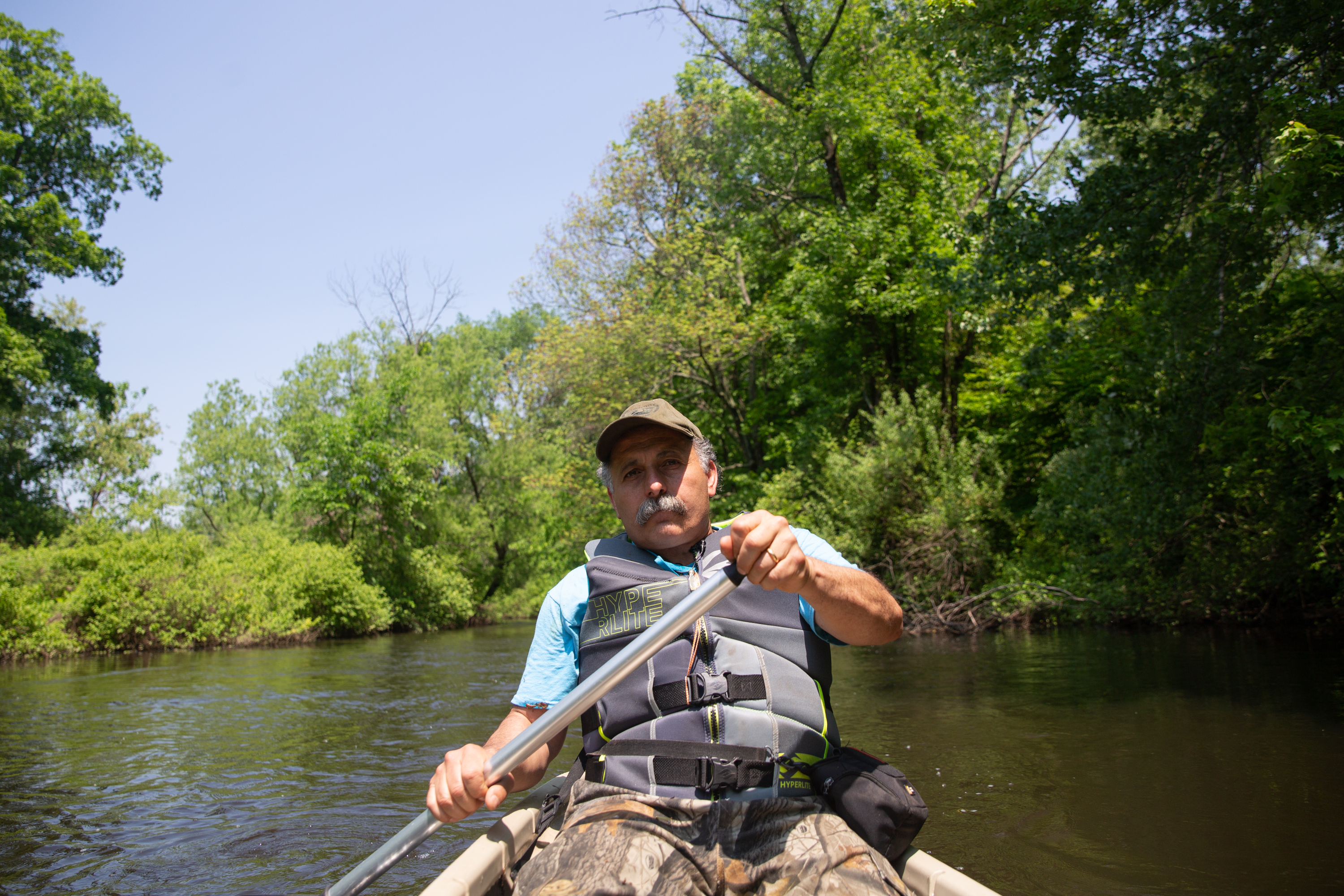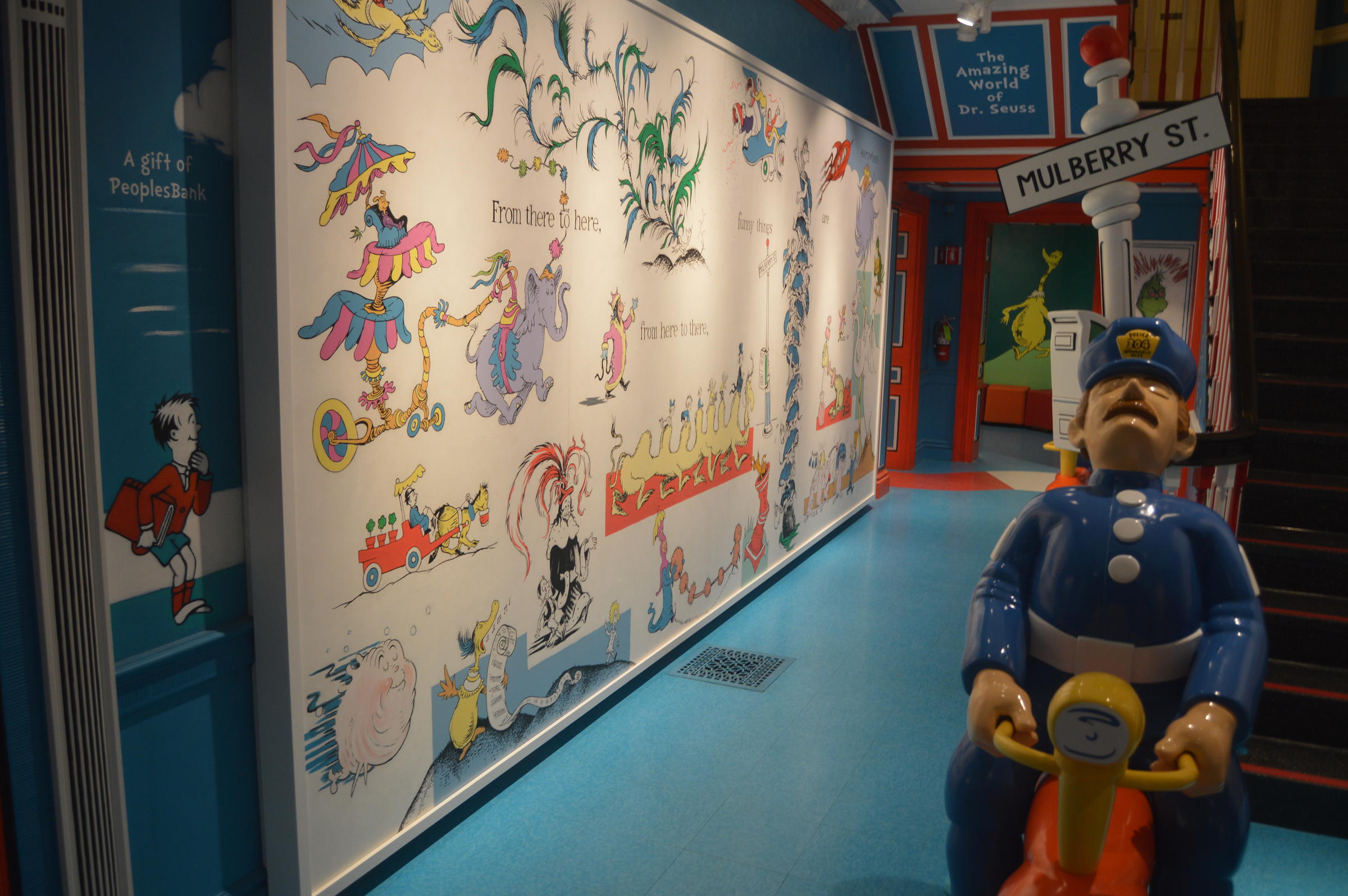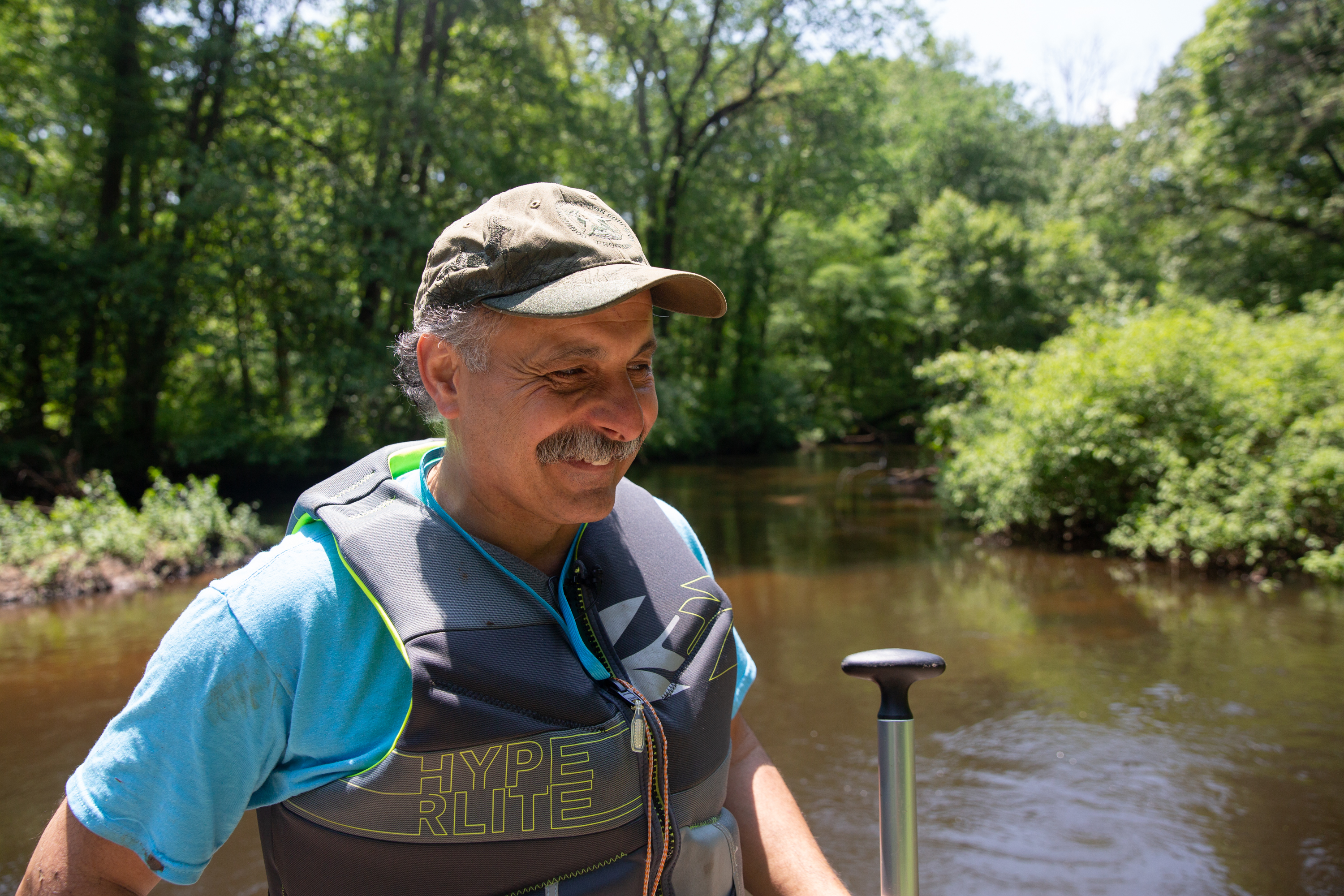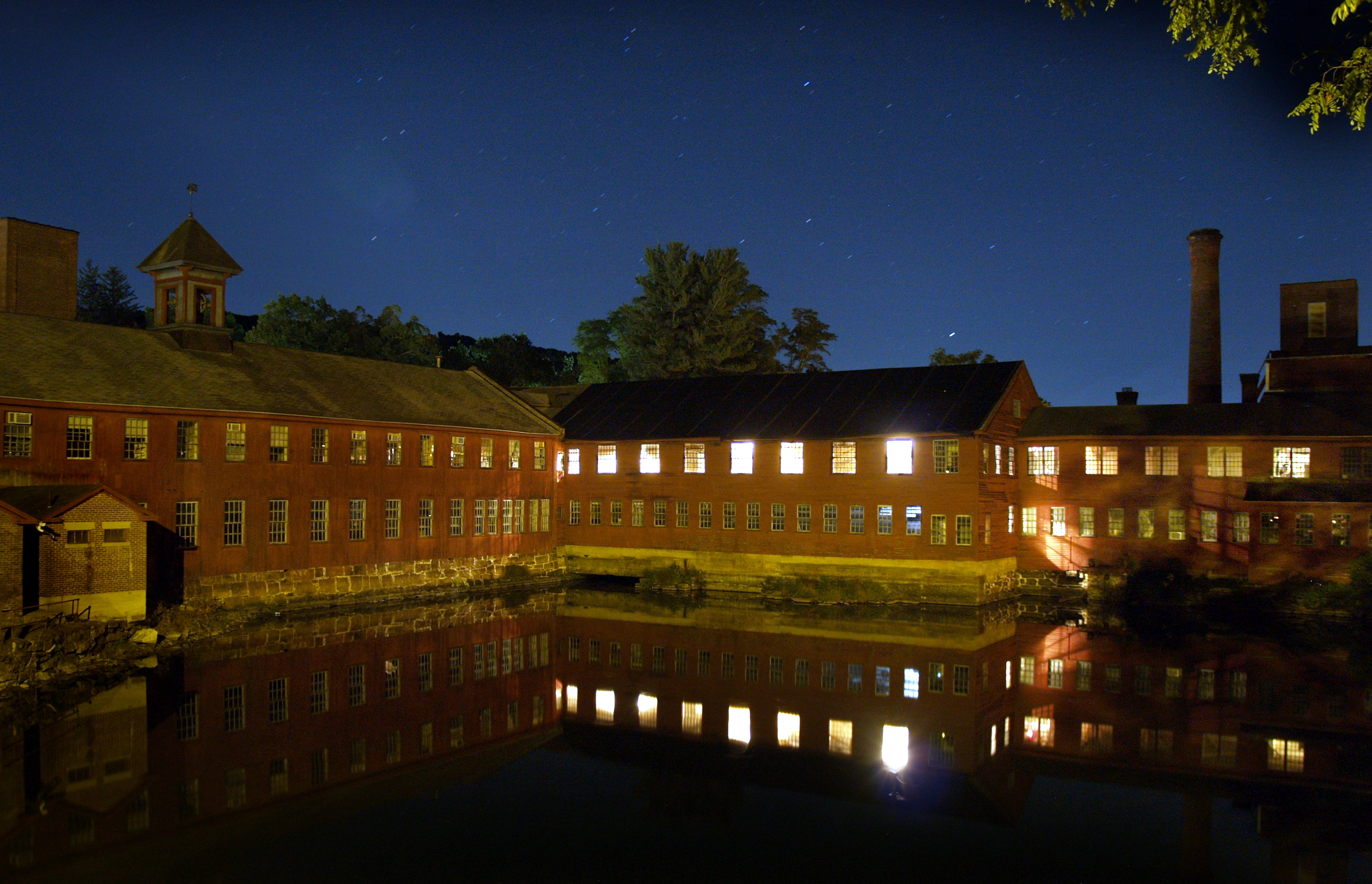Episode 152: Dr. Seuss’ New England Roots; Polluted Rivers, Rebounding Mills
This week on NEXT:
We discuss the future of natural gas in our region.
And, how Springfield-born Theodor Geisel became Dr. Seuss. We’ll also hear from young environmental activists.
Plus, we’ll take a tour down the Quinnipiac River. And, if the walls could talk, what would they say? A new book explores how objects in an abandoned mill building could tell the story of a town. Finally, we’ll meet a troubadour who’s touring our region.
It’s NEXT.
The Future of Natural Gas in New England
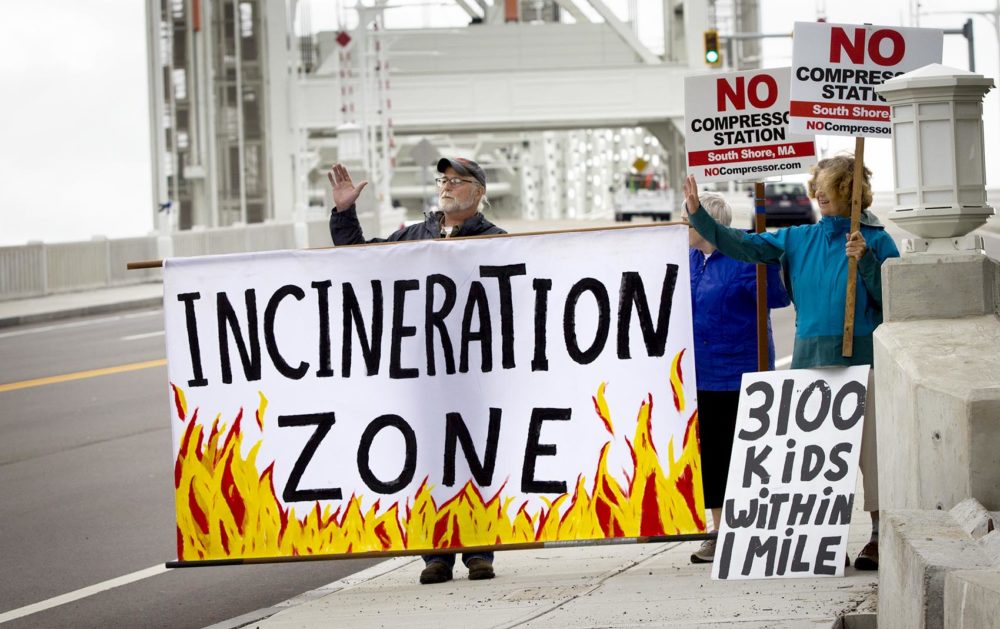
Protesters stand on the Fore River Bridge, close to the site of the proposed gas compressor. Photo by Robin Lubbock for WBUR
In Rhode Island, the developer of an 84-turbine wind farm, Vineyard Wind, has announced they are changing the layout of the farm to reduce its impact on fishermen. Fishermen view the decision positively but say the overall orientation of the massive wind farm — which is laid out in rows from northeast to southwest — isn’t conducive to traditional fishing routes.
Meanwhile, in Massachusetts, the department of public utilities has approved a 20-year contract for the state’s largest utilities to purchase hydro-electricity from Quebec. But opponents are likely to appeal the decision. Dan Dolan, head of the New England Power Generators Association, says the deal doesn’t require Hydro Quebec to produce any additional clean energy. A proposed transmission line that would deliver the hydro-electric power through Maine is still being debated.
As you can see – plans to get renewable power here face pushback from opponents.
But so do projects that would expand New England’s dominant fuel source – Natural Gas. It now accounts for 40% of electric energy in the region, and over the last decade, New England has made big investments in gas infrastructure.
Proponents call natural gas a lower-cost fuel, with a lower carbon footprint, that can be a “bridge” source of power while the region develops more renewables. But many environmentalists don’t see it that way. Worries about fracking for gas in distant states, about pipelines cutting through pristine forests, and about the leakage of methane, have fired up opponents.
In Rhode Island, regulators have rejected a proposal to build a gas and oil-fired plant in Burrillville. This comes at the same time as the Massachusetts Department of Environmental Protection is deciding whether to uphold or revoke a permit for a natural gas compressor station in the town of Weymouth. What do these two decisions mean for the energy mix in our region?
Barbara Moran, the senior editor for WBUR’s Environmental Vertical, Earthwhile, and Tim Faulkner, senior reporter for Eco RI, joined us.
Dr. Seuss’ New England Upbringing
Growing up reading Dr. Seuss books like, well, just about everyone else, I imagined they were written by someone who grew up in a fantastical place, filled with oddly shaped trees and strangely-named animals. But, it turns out Dr. Seuss, born Theodor Geisel, actually grew up in the rather normal town of Springfield, Massachusetts.
A new biography by Brian Jay Jones explores how his New England upbringing and Dartmouth education shaped Geisel’s work. The book is called Becoming Dr. Seuss: Theodor Geisel and the Making of an American Imagination.
Whale Mosaic Draws Attention to Climate Change

Young climate activists constructed a 100-foot mosaic out of 1,200 individually painted tiles. Photo courtesy of Lucian Sharpe for Our Climate
The environmentalist message of Dr. Seuss’ “The Lorax” isn’t lost on young climate activists in Boston. Their message? Adults of the world, do something! Before it’s too late.
For instance, they say, look at the North Atlantic Right Whale, a species threatened by climate change. Two more dead whales have just been found in the Gulf of St. Lawrence, Bringing the total number of dead whales to four in June alone.
To draw attention to the whale’s plight, young people from the nonprofit Our Climate depicted the endangered mammals in a giant mosaic on Boston Common, using more than 1,200 individually painted tiles.
WBUR’s Miriam Wasser went to the event and sent us this postcard.
Conservation on the Quinnipiac River
The Quinnipiac River flows about 40 miles from central Connecticut into Long Island Sound. It’s pathway winds through some of the state’s deepest pockets of pollution.
For decades, nineteenth-century factories and densely populated towns poured sewage and industrial waste into the river.
But recent history has been kinder to the Quinnipiac. Conservation and environmental laws have boosted water quality — and fish and other wildlife have slowly returned.
Connecticut Public Radio’s Patrick Skahill recently met up with a biologist to paddle the Quinnipiac River and take a closer look.
Exploring the History of New England’s Mill Towns
Many polluted rivers in New England are making a comeback, and so are some of the old mills that polluted them in the first place. They’re being turned into high-end lofts, artists spaces, and modernized manufacturing sites.
It’s this history – and transformation – that David Leff explores in a new book of poetry called The Breach: Voices Haunting a New England Mill Town.
Leff is no stranger to this issue: He’s the former deputy commissioner of the Connecticut Department of Environmental Protection and has lived for 30 years in one of these mill towns, where manufacturing is long gone, but the mill buildings still hang precariously over the edge of the Farmington River.
For more on how our industrial past influences our region in the present, check out the video of our live event at the International Festival of Arts and Ideas. We’ll be sharing a portion of the conversation on NEXT in the coming weeks.
Modern Day Troubadour Tours New England
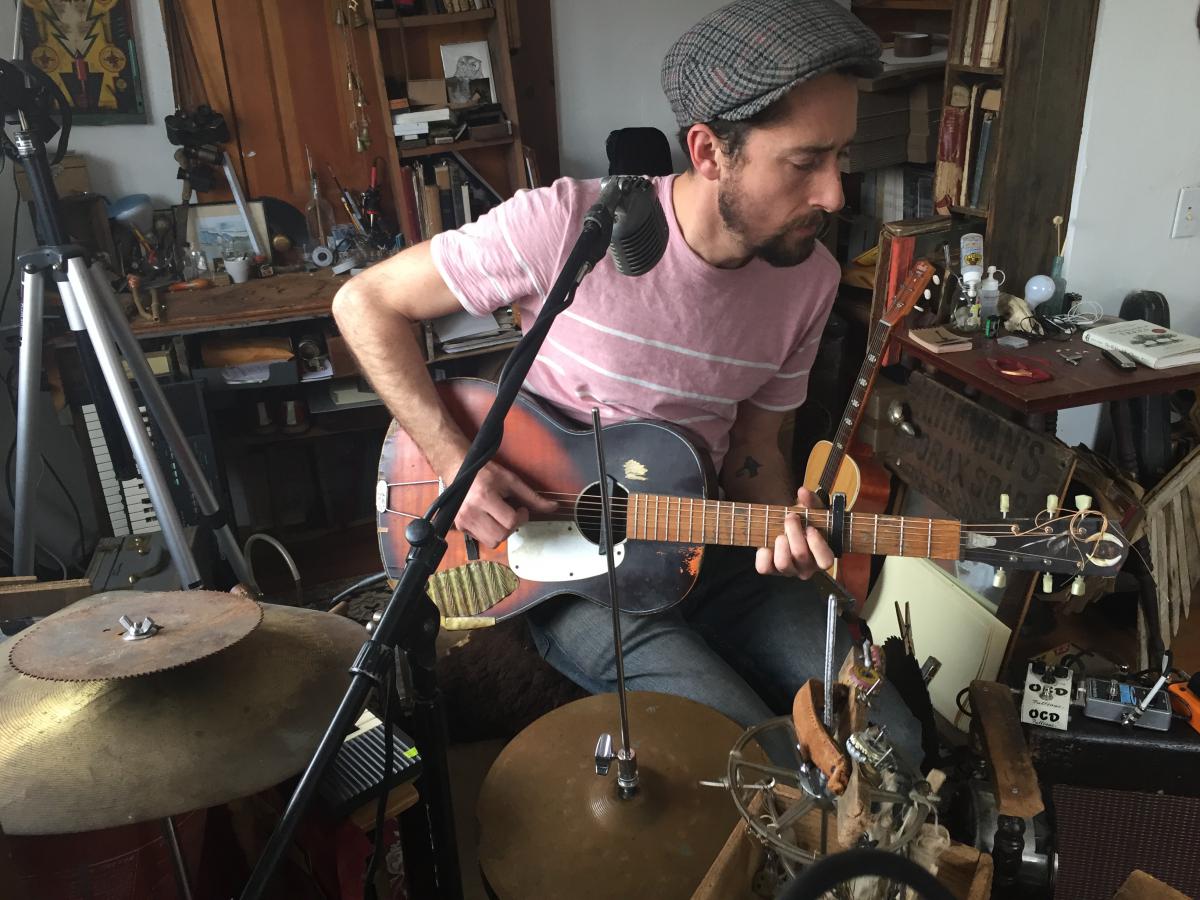
Matt Lorenz sits at a large contraption of homemade and traditional instruments. Photo by Karen Brown for NEPR
Matt Lorenz knows something about making the most of old things. He’s a touring musician from Western Massachusetts, who surrounds himself with homemade gadgets and gizmos. It’s part of what makes his unique sound as the one-man-band, The Suitcase Junket.
New England Public Radio’s Karen Brown introduces us to this old-fashioned troubadour.
New England Music Featured on NEXT
About NEXT
NEXT is produced at Connecticut Public Radio
Host: John Dankosky
Producer: Lily Tyson
Digital Producer: Carlos Mejia
Senior Director: Catie Talarski
Contributors to this episode: Barbara Moran, Nadine Sebai, Bruce Gellerman, Miriam Wasser, Patrick Skahill, Karen Brown
Music: Todd Merrell, “New England” by Goodnight Blue Moon, “King Vice” by Binger, “Rise and Play” by Dave Richardson
New to NEXT? You can find every episode or one you missed within our archives.
We need your feedback! Send critiques, suggestions, questions, and ideas to next@ctpublic.org. Help us spread the word! If you like what you hear, rate and review us on iTunes.

